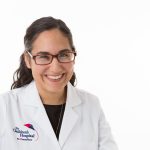On May 13, Georgia Gov. Brian Kemp signed SB 130 into law, officially enacting a key piece of workforce legislation aimed at strengthening Georgia’s healthcare system—particularly in rural and underserved communities. The new law significantly expands state funding for medical education and enhances Georgia’s service cancelable loan program, helping to address critical shortages in the healthcare workforce.
Expansion of Medical Education Funding
SB 130 will broaden eligibility for state-funded graduate medical education support. Previously, state funding was largely reserved for traditional teaching hospitals. Under the new law, the Georgia Department of Community Health is authorized to provide up to $10,000 annually per resident or fellow in qualifying programs, pending legislative appropriations. This change will open the door for expanded fellowship opportunities in the state, particularly in high-need communities.
To be eligible, programs must offer residency or fellowship training accredited by the Accreditation Council for Graduate Medical Education (ACGME) and be Medicare-certified and actively involved in training healthcare professionals.
Enhancement of the Service Cancelable Loan Program
The bill also expands Georgia’s service cancelable loan program to include medical residents and fellows enrolled in ACGME-accredited training programs.
Eligible participants may receive annual state-funded loans during their training, which can be forgiven if they commit to practicing in rural or medically underserved areas of Georgia after completing their education. Priority is given to those who agree to serve in high-need communities.
What’s Next
The ACR has long advocated for state-based loan forgiveness programs and increased funding for medical training. Much of the language adopted in SB 130 draws from model policy previously developed by the ACR.
Building a robust rheumatology and broader healthcare workforce remains a top policy priority for the ACR. The organization plans to leverage this legislative success in Georgia to collaborate with partners in other states, with a goal of advancing similar efforts across the country.



